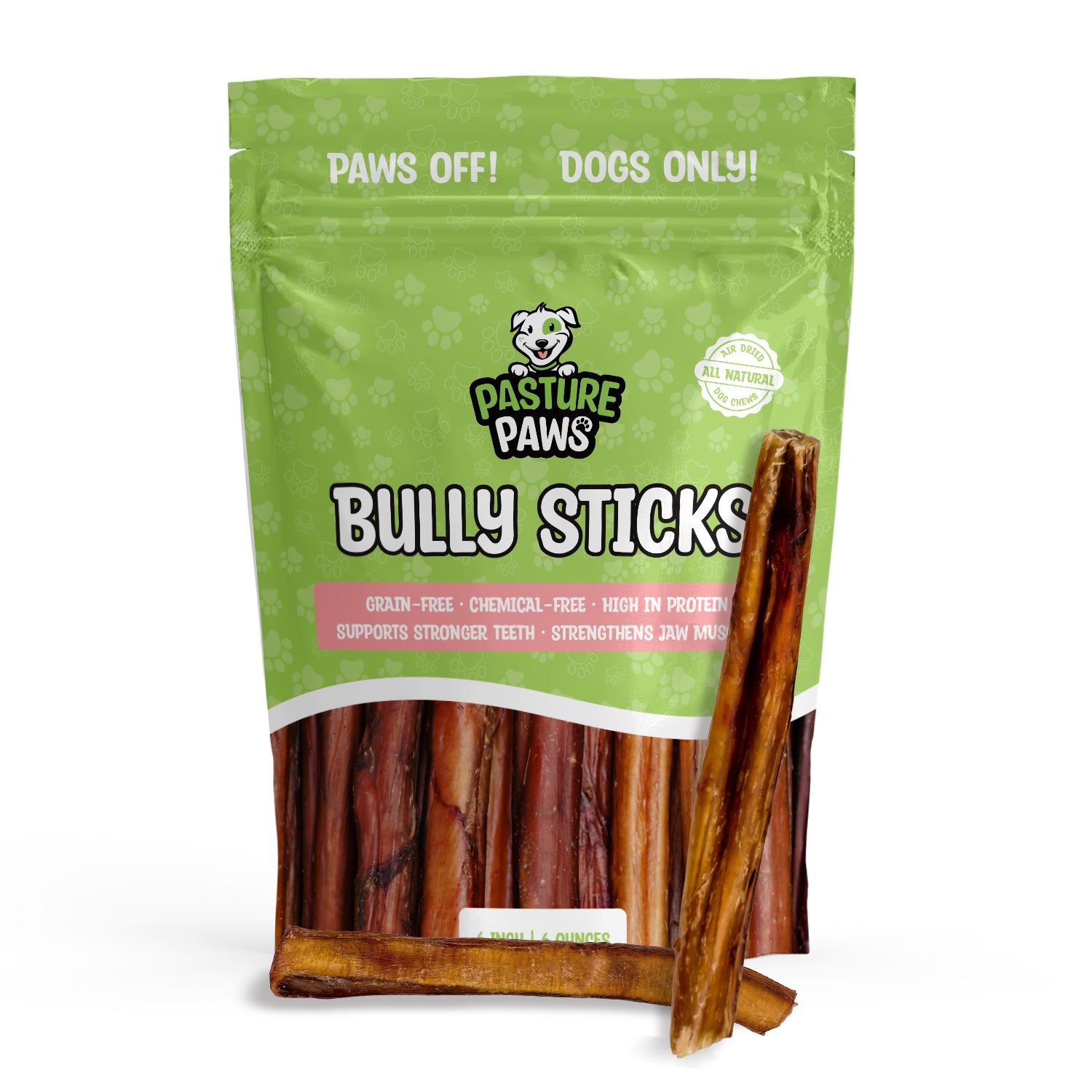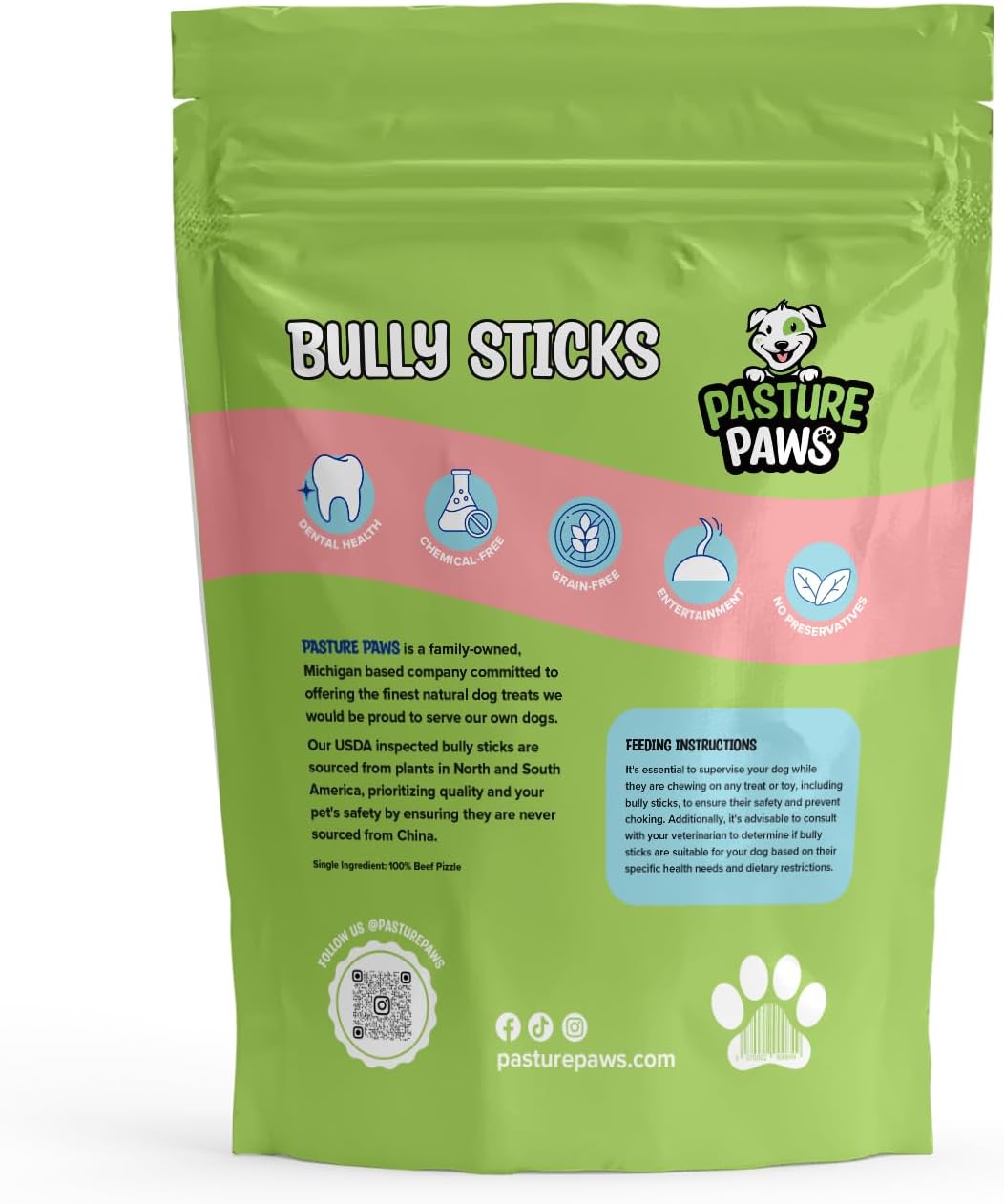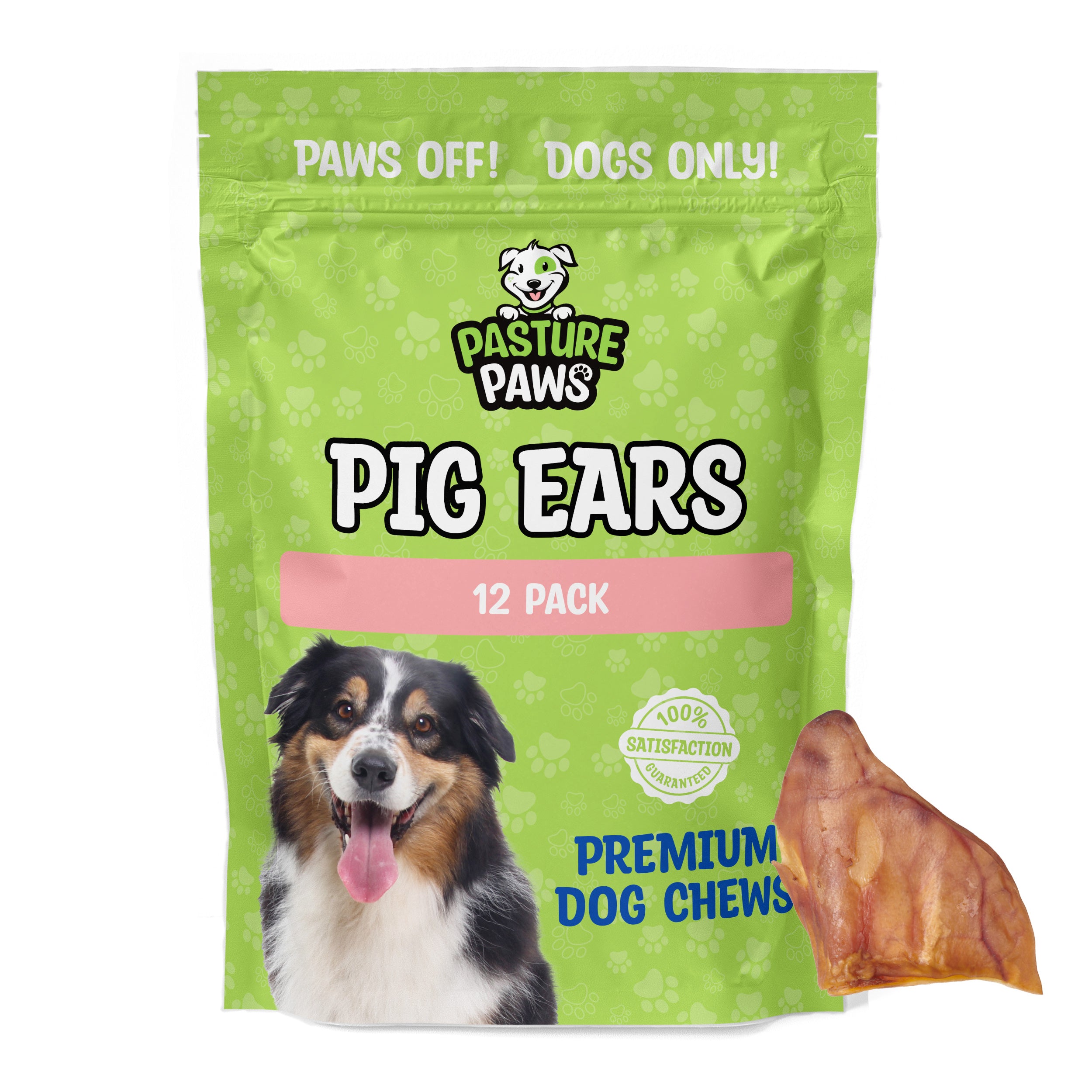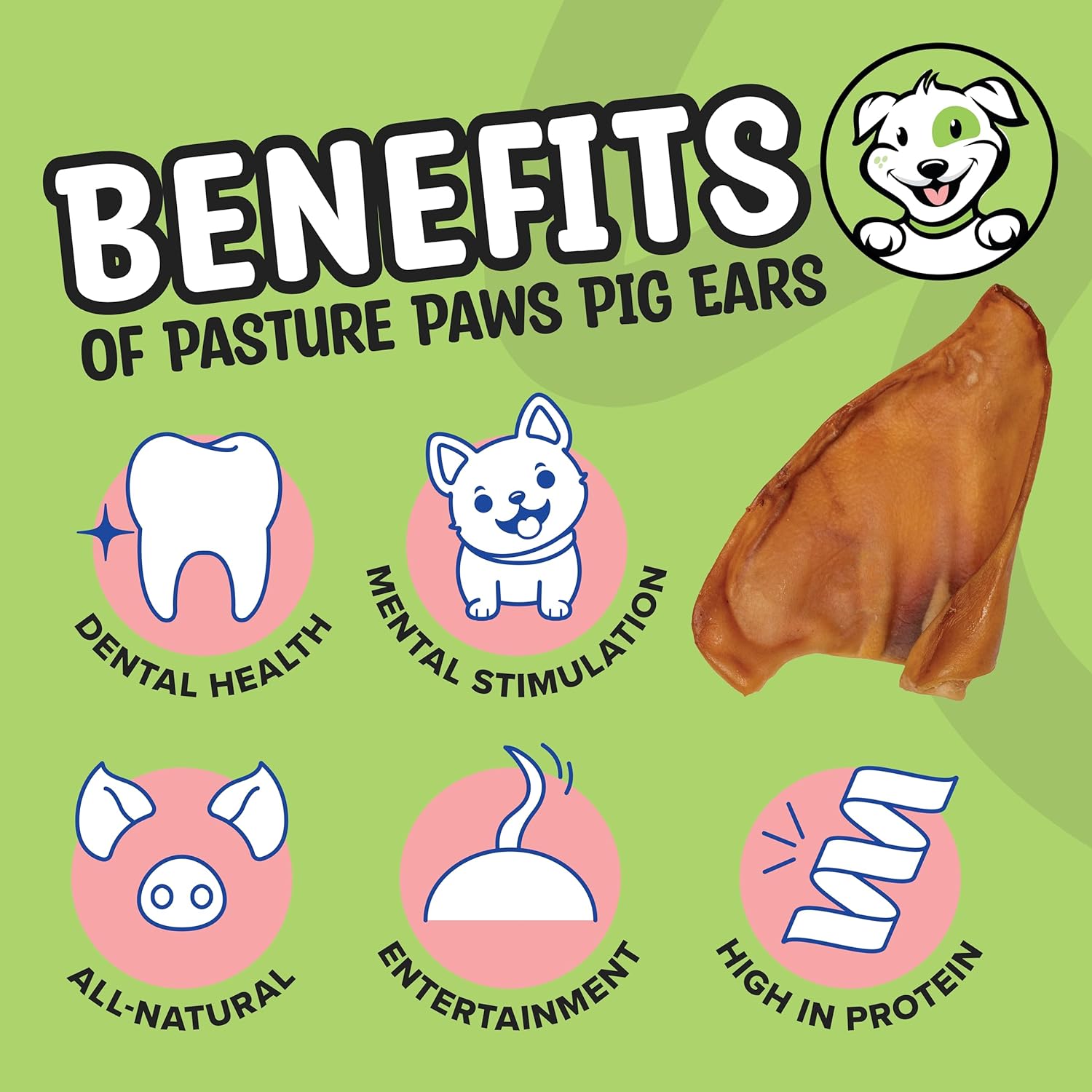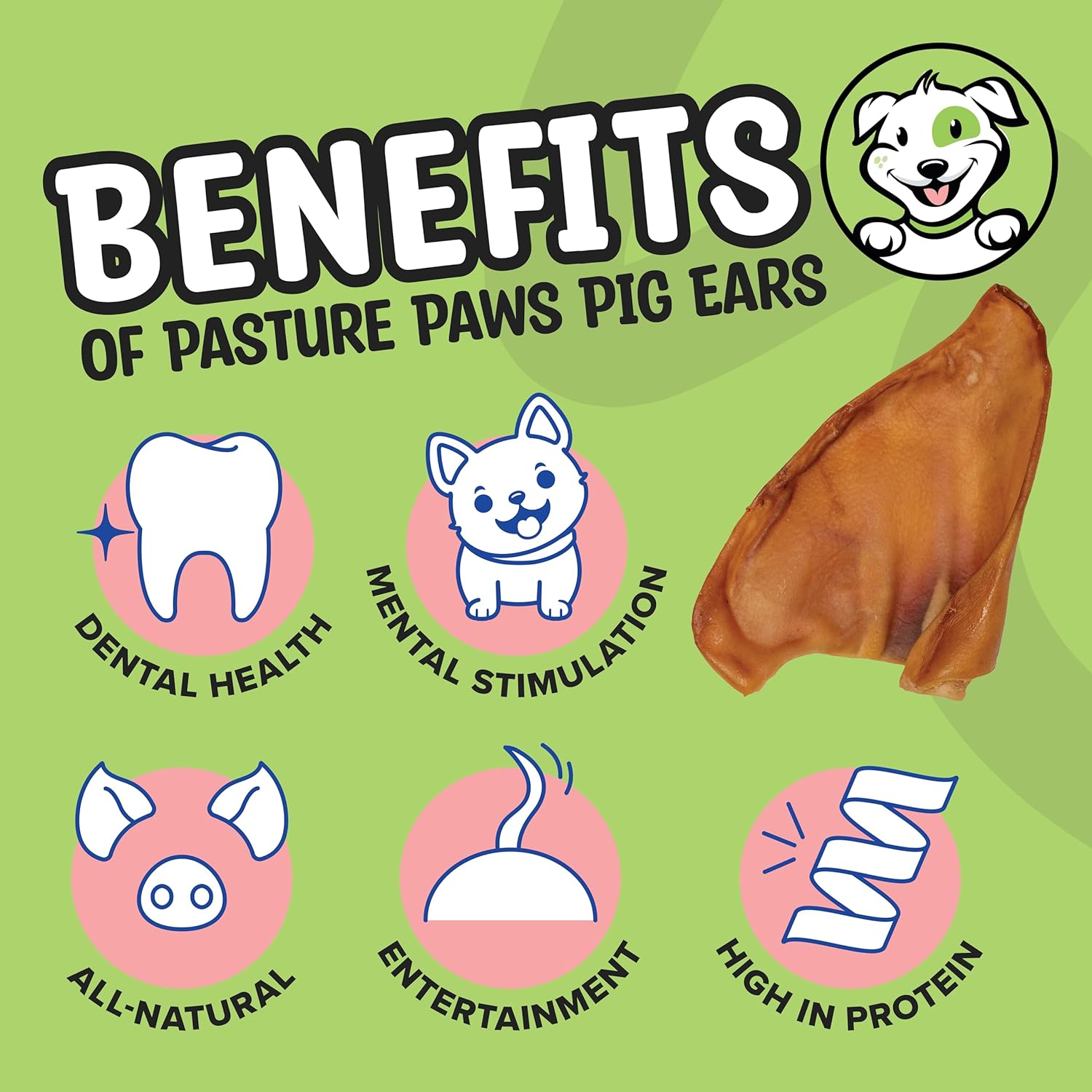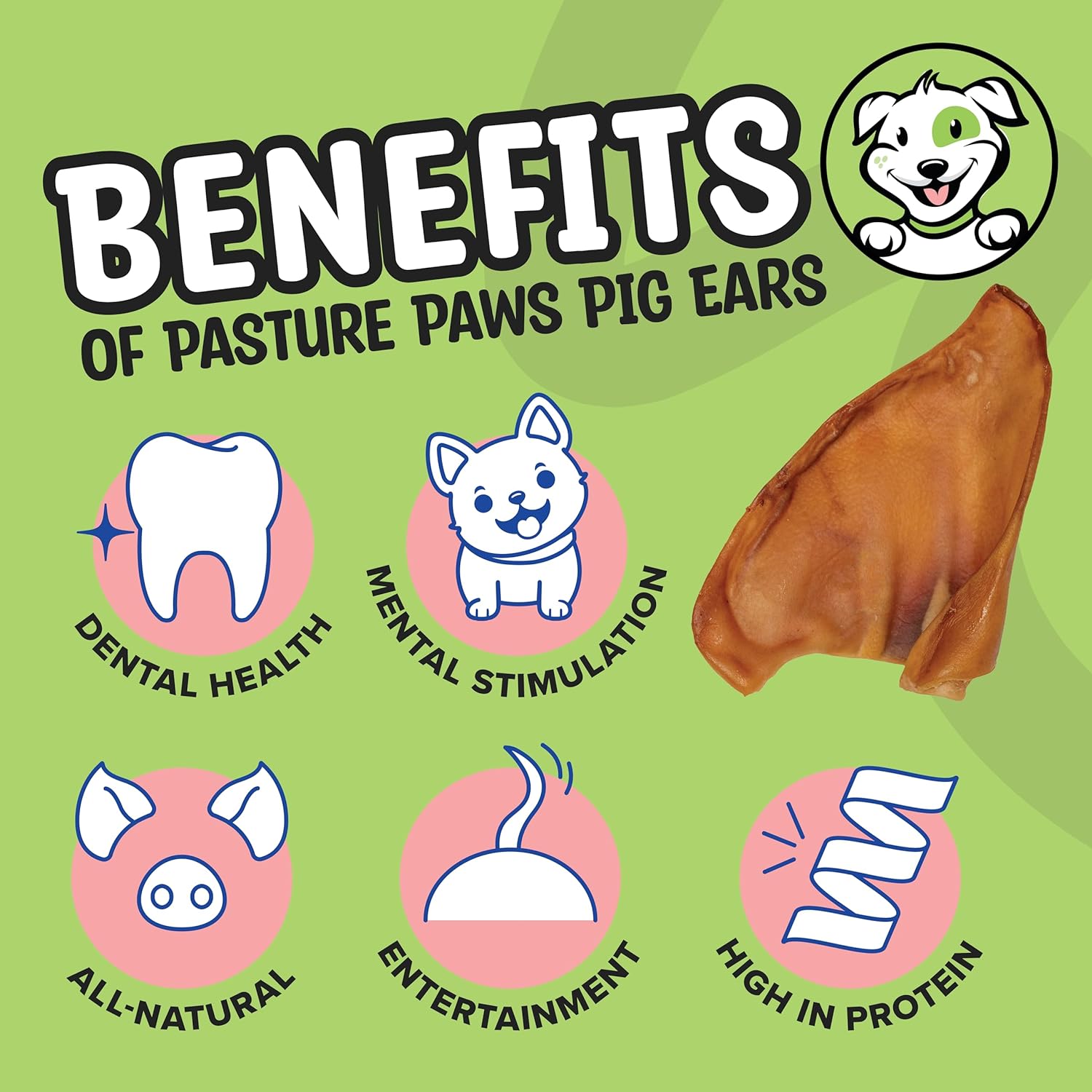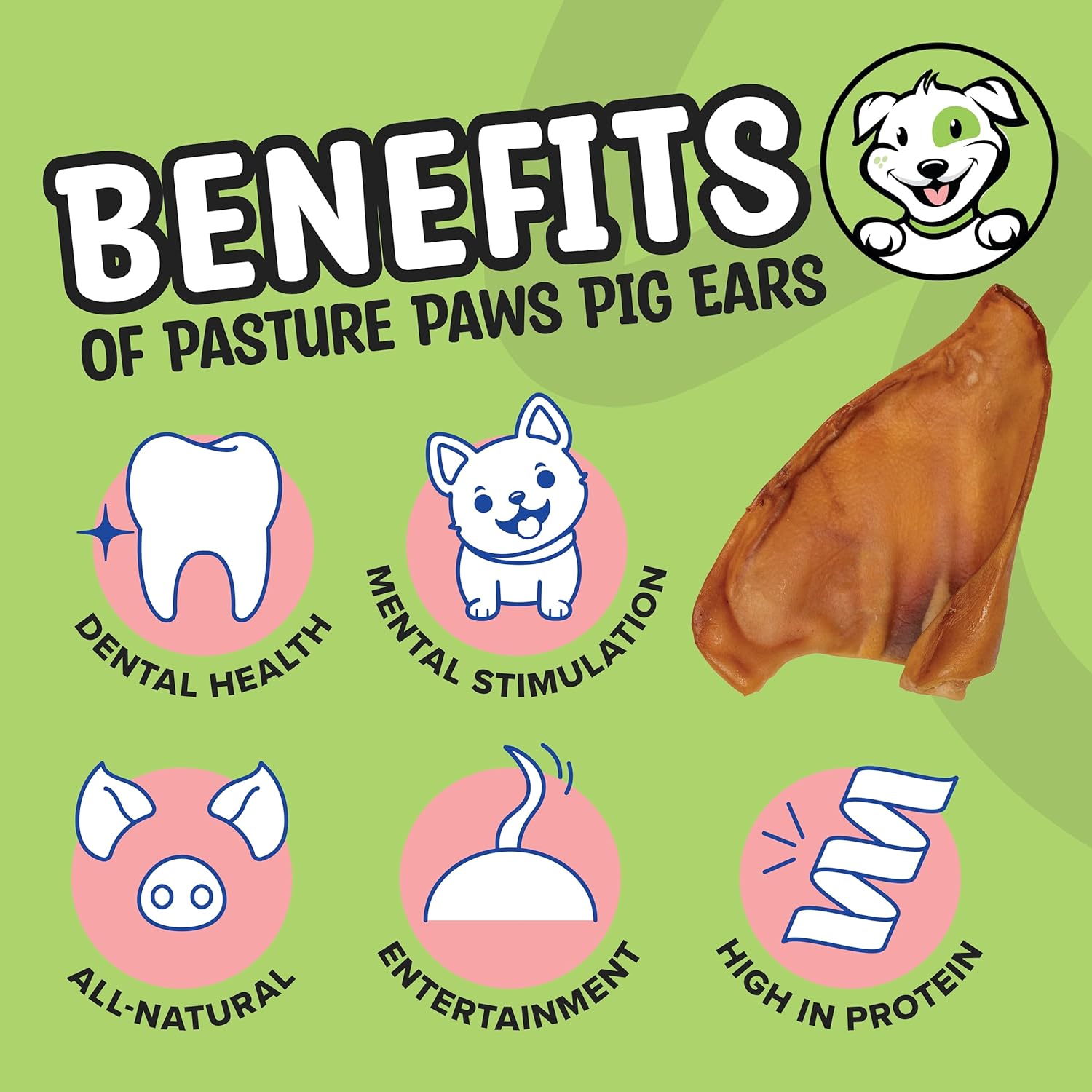Are pig ears bad for dogs? This is a common concern among pet owners who want to ensure their pets’ health and happiness.
Pig ears can be a safe and healthy treat for dogs when sourced from reputable suppliers. They are rich in protein and can help with dental health by reducing plaque and tartar buildup. However, it’s important to monitor your dog while they enjoy this treat to avoid any choking hazards.
In this article, we'll take a closer look at the pros and cons of this popular treat, as well as some tips for choosing safe and healthy pig ears for your dog. For more in-depth information, read our detailed blog posts on Are Pig Ears Safe for Dogs, Are Pig Ears Good for Dogs, and check out our collection of Pig Ears Dog Treats.
Understanding Pig Ears as Dog Treats

If you're considering giving your furry friend pig ears as a treat, it's important to understand their nutritional profile and how they compare to other treats.
Nutritional Profile
Pig ears are a good source of protein, which is essential for muscle growth and repair. They also contain fat, which provides energy and supports healthy skin and coat.
In addition to protein and fat, pig ears also contain cartilage. Cartilage is a natural source of glucosamine and chondroitin, which are important for joint health.
These amino acids help to support the structure and function of joints, making pig ears a beneficial treat for dogs with joint issues.
Comparison With Other Treats
Pig ears are a natural and minimally processed option compared to other dog treats. They don't contain any artificial additives or preservatives, making them a healthier choice for your pup.
It's important to note that pig ears can be high in fat, so they may not be suitable for dogs with pancreatitis or other fat-sensitive conditions.
When choosing a treat for your dog, it's important to consider their individual needs and preferences.
Pig ears can be a great option for dogs who love to chew and need a natural source of joint support.
Health Benefits of Pig Ears for Dogs
Pig ears can be a great treat for your furry friend, and they offer a variety of health benefits that can improve your dog's well-being. In this section, we will explore some of the health advantages of pig ears for dogs.
Dental Health Advantages
One of the main benefits of pig ears for dogs is that they can help clean their teeth.
Chewing on pig ears can help reduce tartar and plaque buildup, which can lead to dental issues such as bad breath, gum disease, and tooth decay.
The act of chewing on pig ears can also help strengthen your dog's jaw muscles, which can improve their overall dental health.
Joint Health and Mobility
Another benefit of pig ears for dogs is that they can help improve joint health and mobility.
Pig ears are a natural source of glucosamine and chondroitin, which are important nutrients for joint health.
These nutrients can help reduce inflammation and improve joint function, which is especially beneficial for seniors or dogs with joint issues.
Pig ears also contain omega-6 and omega-3 fatty acids, which can help reduce inflammation and improve overall mobility.
These fatty acids can also help improve skin and coat health, which can benefit puppies and dogs with skin issues.
Considerations When Offering Pig Ears
When it comes to giving your dog pig ears, you should be aware of some potential risks and concerns. While pig ears can be a tasty and entertaining treat for your furry friend, it's important to understand the possible drawbacks.
Choking and Intestinal Blockage
While pig ears are a beloved treat for dogs, it's essential to ensure safe enjoyment. Their chewy texture can sometimes pose a risk of choking or intestinal blockage if swallowed in large pieces.
To keep your dog safe and happy, supervise their chew time and remove the treat if it becomes too small or if they attempt to swallow large pieces. This simple precaution ensures they can continue to delight in their treats without worry.
Bacterial Contamination
While pig ears are popular for dogs, it's important to be mindful of potential bacterial contamination. To safeguard your dog's health, opt for pig ears from trusted suppliers and store them correctly. By taking these precautions, you can ensure your dog continues to enjoy their treats safely and happily.
Allergic Reactions and Pancreatitis
In addition to the above concerns, some dogs may also be allergic to pig ears or may be prone to developing pancreatitis.
Pig ears are rich in fat, which can be challenging for certain dogs to digest. Overconsumption may lead to digestive upset such as upset stomach, diarrhea, or vomiting.
If your dog has a sensitive stomach or a history of digestive issues, consider alternative treats better suited to their needs. Should you observe any signs of allergic reaction or pancreatitis—such as vomiting, diarrhea, or abdominal discomfort—discontinue pig ears and seek advice from your veterinarian promptly.
Safe Feeding Practices for Pig Ears

When feeding pig ears to your furry friend, there are a few safe feeding practices that you should follow to ensure your dog's health and safety.
Moderation and Monitoring
Firstly, feeding your dog pig ears in moderation is important. While pig ears are considered safe for dogs, overfeeding can lead to digestive issues and obesity.
Limiting your dog's pig ear intake to no more than one per day is recommended, depending on your dog's size and weight.
Additionally, you should also monitor your dog while they are chewing on a pig ear.
This is especially important if your dog is a fast eater or tends to swallow large pieces of food without chewing.
Swallowing large chunks of pig ear can lead to choking or intestinal blockages. Therefore, you must supervise your dog while they enjoy their treat to prevent any potential hazards.
Choosing High-Quality Pig Ears
When choosing pig ears for your dog, make sure to select high-quality products from reputable sources.
Look for pig ears that are free from any added preservatives, chemicals, or artificial flavors.
It is also recommended that you choose pig ears that are sourced from healthy animals and are processed in a clean and safe environment.
As a responsible dog owner, it is important to consult with your veterinarian before introducing pig ears or any other new treats into your dog's diet.
Your veterinarian can provide you with specific recommendations based on your dog's individual needs and health status.
Pig Ears for Specific Dog Populations

Puppies and Pig Ears
Puppies have different dietary needs than adult dogs and require a balanced diet to support their growth and development.
While pig ears can be a tasty treat for puppies, it is important to keep in mind that they are high in fat and calories.
Overfeeding your puppy with pig ears can lead to obesity and other health problems. As a general rule, pig ears should not make up more than 10% of your puppy's diet.
Additionally, you should supervise your puppy while they chew on pig ears to prevent choking and other hazards.
Always choose high-quality pig ears that are free from harmful chemicals and additives.
Senior Dogs and Dietary Needs
Senior dogs have different dietary needs than puppies and adult dogs. As dogs age, their metabolism slows down, and they become less active. This means that senior dogs require fewer calories and less fat in their diet.
Pig ears can be a great treat for senior dogs, but it is important to choose a low-fat option to avoid weight gain.
If your senior dog has dental problems, pig ears can be a great way to help keep their teeth clean. However, if your senior dog has difficulty chewing, it is best to avoid pig ears altogether.
Always consult with your veterinarian before introducing new treats or making any changes to your senior dog's diet.
Alternatives to Pig Ears

If you're looking for a natural chew option for your dog but want to avoid pig ears, there are several alternatives to consider. Here are two options to consider:
-
Cow Ears: Like pig ears, cow ears are a natural and digestible chew option for dogs. They are also low in fat and high in protein, making them a healthy alternative. Look for cow ears that are free from preservatives and additives.
-
Bully Sticks: Bully sticks are made from dried bull or steer penises and offer a long-lasting chew option for dogs. They are high in protein and low in fat, making them a healthy alternative to pig ears. However, they can be more expensive than other chew options.
-
Rawhide Chews: Rawhide chews are made from the inner layer of cow or horse hides and are a long-lasting chew option for dogs. However, they can be difficult to digest and may cause digestive issues in some dogs.
Conclusion
Pig ears can be a beneficial treat for dogs, offering advantages such as improved dental health and joint support. Ensuring the safety of your pet involves sourcing pig ears from reputable suppliers and supervising your dog while they enjoy this treat. Consulting with your veterinarian, particularly if your dog has specific health concerns or dietary requirements, can provide additional personalized guidance. By taking these precautions, you can confidently include pig ears in your dog's diet as a healthy and enjoyable treat.
For high-quality, safe pig ears and other nutritious treats, visit our website at Pasture Paws. Your dog deserves the best!
Frequently Asked Questions
How often can I give my dog pig ears?
It is recommended to limit the consumption of pig ears to once or twice a week. Overfeeding your dog's pig ears can lead to weight gain and digestive issues.
Are dried pig ears a safe treat for dogs?
Dried pig ears are generally considered safe for dogs to consume. However, it is important to purchase them from a reputable source and to check for any signs of contamination or spoilage before giving them to your dog.
At what age is it appropriate to give puppies pig ears?
Puppies should not be given pig ears until they are at least six months old. This is because their digestive systems are not fully developed, and they may have difficulty digesting the treat.
Are pig ears safer for dogs than rawhide?
Pig ears are generally considered safer for dogs than rawhide. This is because they are easier to digest and less likely to cause choking or blockages.
However, it is important to supervise your dog while they are chewing on any type of treat. You should also discard any small or broken pieces to prevent choking or blockages.
